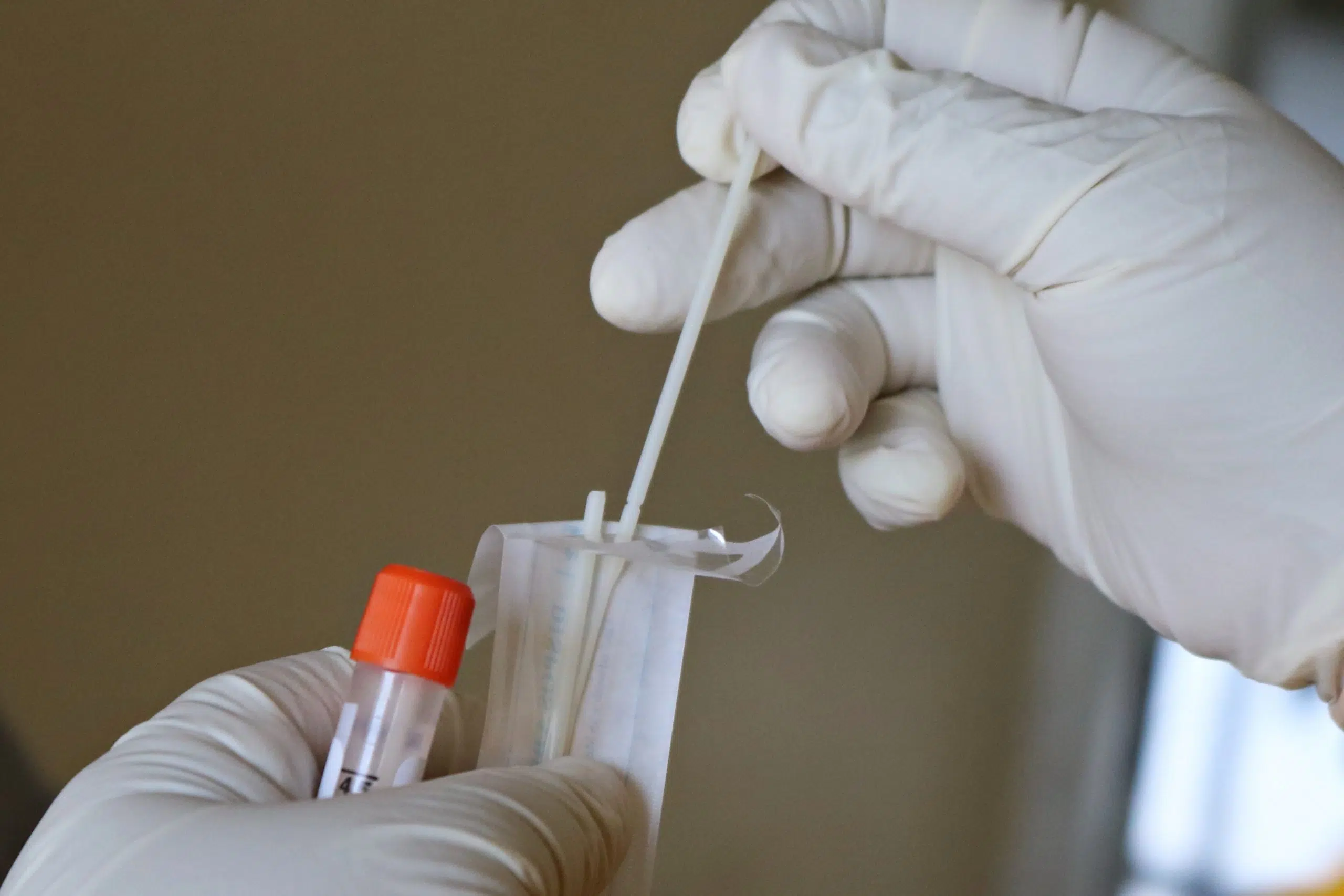New Brunswick is doing away with the self-referral option for COVID-19 PCR testing.
As of April 1, PCR tests will only be available when requested by a health-care provider.
“The number of self-referral PCR tests has been steadily declining over the past year,” Dr. Jennifer Russell, the province’s chief medical officer of health, said in an interview on Friday.
Russell said there were 8,000 self-referrals for a PCR test in March 2022, which dropped to 370 in February.
Since January 2022, New Brunswick has been reserving PCR tests for certain groups, including those who:
- Are over 50 or are under two.
- Live or work in a hospital, Extra Mural and Ambulance New Brunswick (EM/ANB), long-term care facility, correctional facility or shelter, or are precariously housed.
- Are immunocompromised or pregnant.
- Require a PCR test for international travel.
Everyone else has been eligible to pick up a rapid point-of-care test kit and has been encouraged to register positive results online.
“I can’t speculate why the population is choosing one over the other, but I have a feeling that it has to do with convenience and people’s perceived risks and what behavioural changes or actions they’re going to take,” she said.
The move comes as New Brunswick has seen its PCR test positivity rate trend upward in recent weeks, where it has hovered around 20 per cent.
The positivity rate is the number of positive PCR tests divided by the total number of tests completed. A higher positivity rate indicates a high level of community transmission.
Russell said other jurisdictions across the country are moving in a similar direction when it comes to PCR testing, but did not provide any specific examples.
The move to eliminate self-referrals means health-care resources can be switched to other areas of the regional health authorities, she said.
The Horizon Health Network said it will reassign 26 of 40 staff members at its COVID assessment centres back to roles in hospitals or in primary health care. They include nurses, respiratory technicians and administrative support.
Rapid test kits will continue to be available by appointment through a variety of community-based sites, including public libraries, municipal buildings and health centres.
It is anticipated the updated COVID testing strategy will lead to more people seeking rapid test kits, but Russell said she is not worried about supply.
“My understanding is we’re good for rapid tests. At this time, we’ve got good inventory so we can meet that demand,” she said.
Russell said the province will still report the results of any PCR tests conducted in its weekly COVID report.








